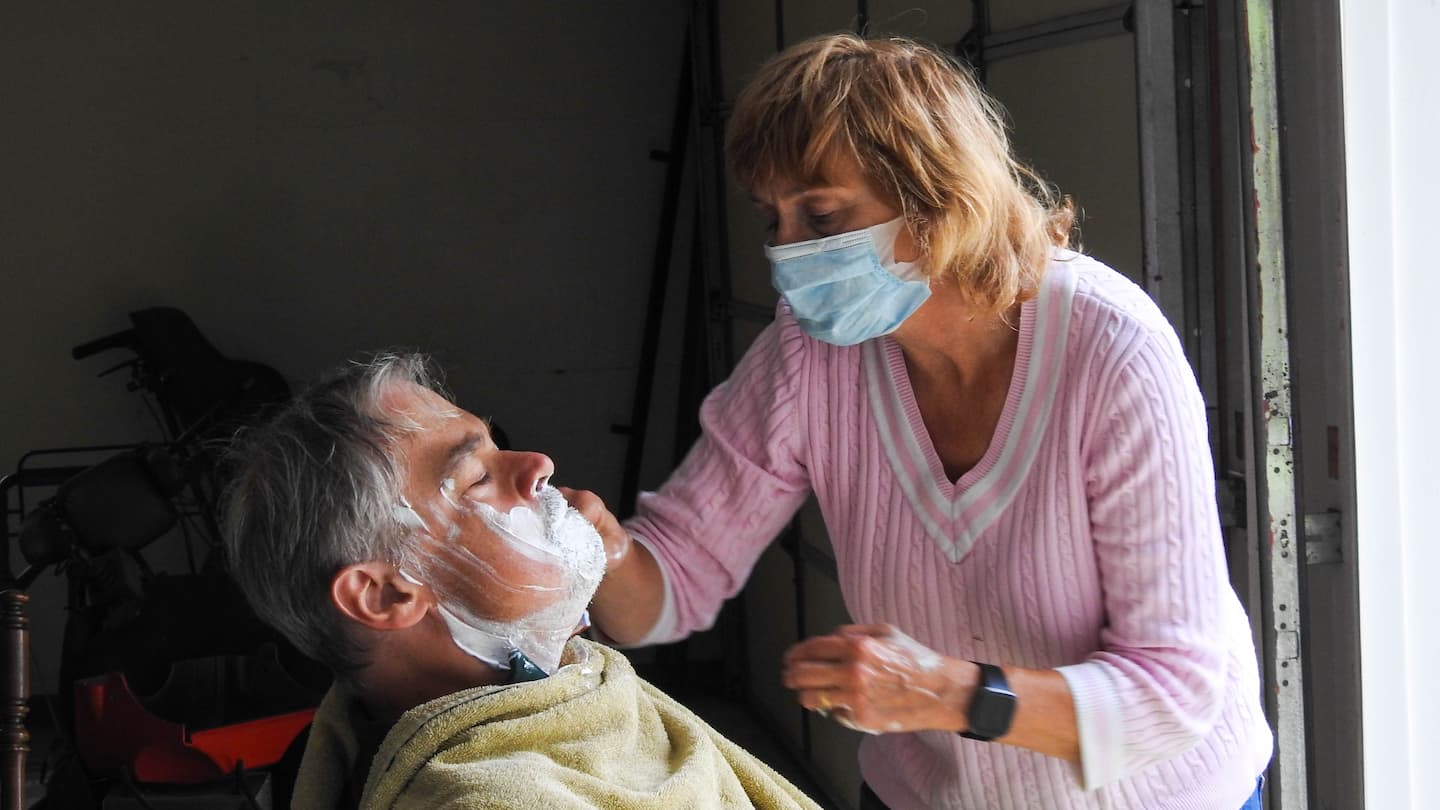Covid-19 poses special risks to people like my brother-in-law. They need vaccines now.

Americans can be proud that we no longer warehouse people with Down syndrome, Fragile X, autism and related conditions within institutions and state homes. But we cannot be complacent about the dangers they face.
Across the United States, it’s unclear where CILAs or sprawling complexes such as Ludeman stand in the vaccine queue. There is no national definition of long-term care facilities. States decide this on their own. Illinois’ covid vaccine plan makes little mention of IDD, though officials recently indicated that developmental centers and CILAs would receive priority. Other states took a similar approach, referencing disability and residence in a congregate setting in broad terms as factors in setting priority for vaccination, but neglecting to clarify where people with IDD stand. Nationally, caregivers, family members, CILA residents and staff are largely in the dark.
Vincent’s household includes five other men. Two use wheelchairs and require considerable help. Another is an older adult. Two staff members help Vincent prepare meals and perform housekeeping tasks, and assist the gentlemen with bathing, toothbrushing and daily medications. These workers are at risk — and thus Vincent is, too — because they are people of color living in south-suburban Chicago communities hammered by the pandemic.
Precautions to prevent the spread of covid-19 place people such as Vincent in danger of other physical and mental health harms. Many people with intellectual and developmental disabilities need services that can’t be performed over Zoom. Direct support work is hard and poorly paid, with frequent turnover. It’s important for a family to be able to check in on the care their relatives are receiving — or not receiving — during this difficult time.
The psychological impacts of isolation weigh on people with IDD. Window visits and Zoom are bewildering. Many are frightened by masks and other forms of personal protective equipment or experience physical distancing as a form of punishment.
Vincent has spent 50 years giving affectionate hugs. It’s hard for him and his peers to be vigilant about masks and physical distancing. While he’s been well-protected from covid-19, he’s bored and cooped-up. His day services are closed, recreational opportunities are halted. For more than a decade, he’s spent weekend afternoons and evenings catching up with our family friend Robin over dinner and a movie. That suddenly stopped.
Veronica — a nurse and medical social worker — has long monitored Vincent’s medical and dental appointments, sorted through his clothing and his room, observed him for injuries and inspected his feet, which are vulnerable to infection.
During the first few months of quarantine, our visits with Vincent were limited to short, physically-distanced doorway conversations. Routine dental, podiatry and primary-care visits were postponed. By summer, we were allowed brief visits in the garage, where he could share a snack and get a quick shave. Staff turnover continued apace. Telephone access to the house was spotty.
Veronica couldn’t regularly monitor his health. She couldn’t address routine problems as she’s always done. At the hospital, nurses discovered that his right big toe was ulcerated, bright red and grossly swollen.
We anxiously waited for Vincent’s test results. After three days, they came back — covid-negative. But his toe ulcerations had resulted in bacteremia, and — his doctors suspected — produced pneumonia that landed him in the emergency room. This wasn’t directly attributable to covid-19. But absent the pandemic, Veronica would have likely caught and addressed the ulcerations that may have made him so sick.
Vincent and his housemates need early vaccines that would allow them to resume healthy and safe lives. Those who care for them have done this hard work for months, facing risks hardly reflected in their modest wages. They earned a prominent place in the queue. So did family caregivers, particularly the estimated 1.3 million over the age of 60.
Vincent is out of the hospital, recovering in our home. The alternative was a skilled nursing facility. He would have been scared by this unfamiliar environment. We would have been, too.
He’s still with us. He wants to live here permanently. We don’t know that we can commit to that. We know that he and everyone who lives with and cares for him deserve to be safe.
Read more:






